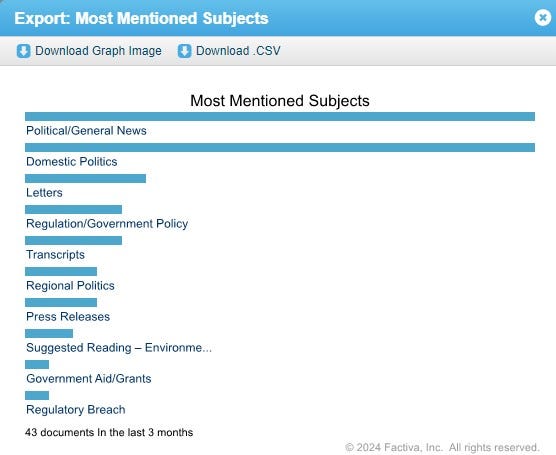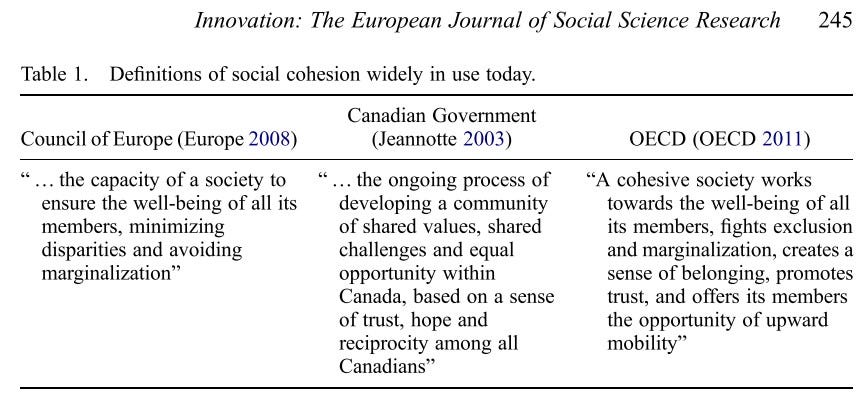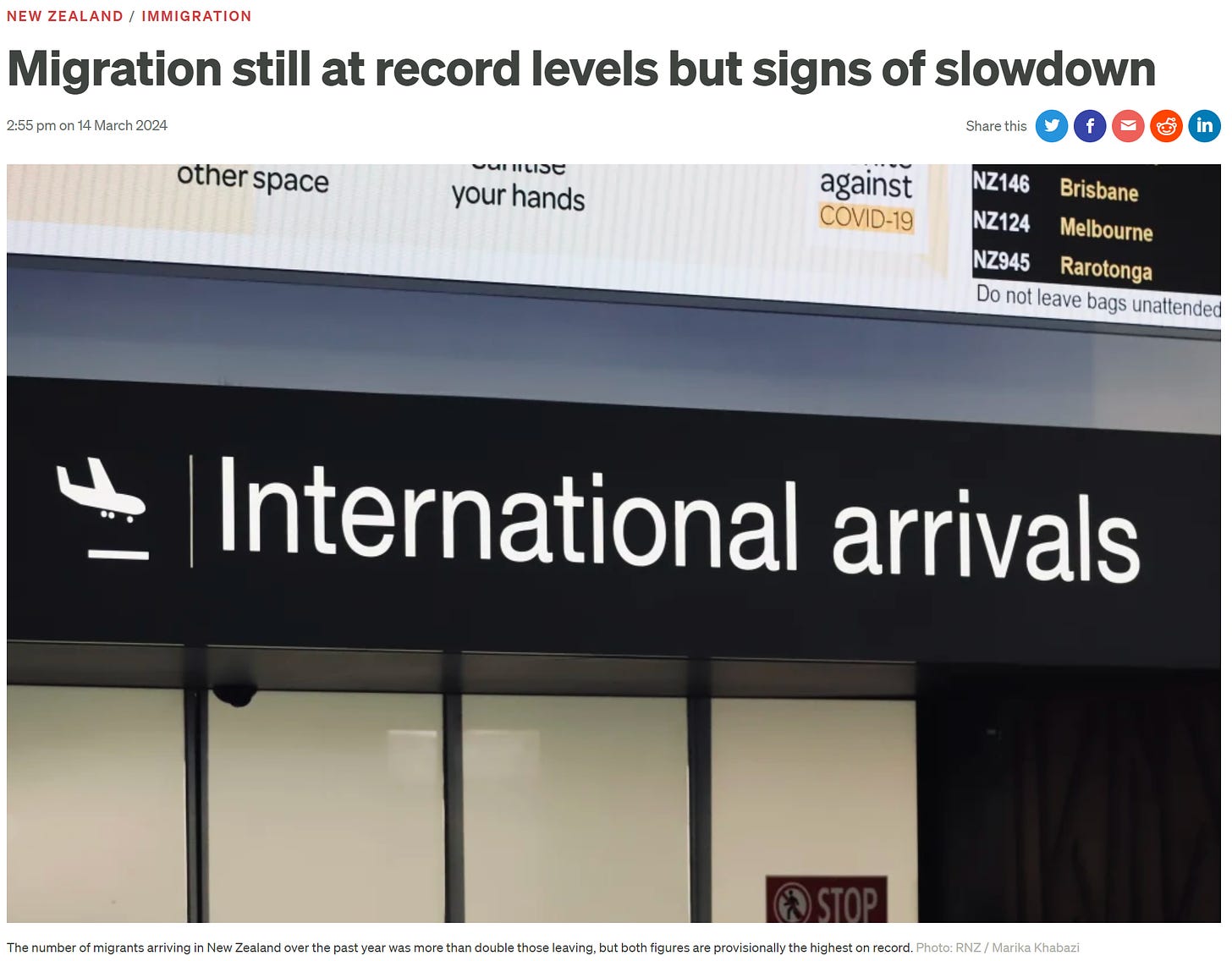Some thoughts on neoliberalism and social cohesion in New Zealand
I don't think governments can solve everything, and it should focus on things no other sector, group, community can solve. So, what does neoliberalism & social cohesion have to do with this? Read on.
As I dig deeper into social cohesion, I wonder whether it is about equity, or about justice, or about peace. And what impact will policy and this government have on it? Can the government ‘solve’ our social cohesion-related issues? And will their ‘neoliberal’ approach hurt or improve it?
Firstly, I think the Government (either left or right-leaning) has limits, and Labour showed us where those limits are quite well. So, in parallel to this thought, I started to notice the idea of neoliberalism being “back,” as I see a lot of talk about this Government and its neoliberal tropes.

I checked in Factiva (a journalism database), and in the past 3 months in New Zealand, the term neoliberal* has been mentioned 170 times. Below is a graph from Factiva with the topics that mentioned neoliberalism in New Zealand the most:
An example of some of the most recent comments: Steve Maharey stated, “ACT seems keen to rerun the neoliberal policies of the 1980s and 90s, hoping that they might not result in economic underperformance, social breakdown, and personal isolation this time around. New Zealand Firsts want to return to the middle of the last century. Great things were happening then, but, as the saying goes, ‘the past is a different country; there is no going back’”.
Some of the main arguments against neoliberalism are that it is hurting our social ties, equity, and unity and threatening our cohesion. But what if what is hurting our social ties and unity is not a neoliberal agenda but the way we have dealt with ideas of diversity, inclusion, and belonging? Are we thinking about it all wrong?
I am not here to support or defend neoliberalism as a political or social theory, but to share some of my thoughts when trying to be less certain about it all. Ideally, I want to help illuminate the contradictions and issues we might overlook when generating opinions about this government's approach. Given the public's focus on neoliberalism, let's unpack this for a second and then test it against social cohesion to see what new questions we might be able to ask ourselves, our politicians, and the media.
Neoliberalism and social cohesion
Critics argue that neoliberal policies drive social fragmentation through increased inequity, individualism, and reduced social welfare. This perspective, however, deserves a second look.
Could it be possible that we're missing a different outcome from these policies? I wonder if neoliberalism has allowed for stability in global peace. Now, does this matter? One could argue that’s a pretty low bar to measure a trend in political and social behaviour. But is it? When I say government can’t solve everything, I mean it, and one thing I do think its responsible for is keeping the peace, both locally and internationally. Anyway, for the sake of this article and my train of thought, just indulge me.
Our collective entitlement to peace
I was born in 1982, coinciding with the ascendancy of the neoliberal agenda under leaders like Reagan (1981–1989 in the USA) and Thatcher (1979–1990 in the UK). This era also marked the beginning of a level of global peace that my generation—at least in every Western liberal democracy—has somewhat taken for granted. We feel so entitled to world peace that it is not even a consideration in the collective mainstream conversation. I don’t think we understand what it takes for this to happen or what it takes to keep it. So what, you may ask?
This challenges the predominant narrative that neoliberalism has solely disrupted our societal fabric and created problems, which I would struggle to argue against, but are we missing the bigger picture? I want to suggest a more nuanced view of its effects on global and local peace, especially regarding social cohesion.
What if social cohesion is more about peace as an ultimate goal, than equity, justice, or inclusion?
What if what is causing social fragmentation and inequity is how we have dealt with governing a diverse population? What if our tendency to organize our populations into groups without fully understanding the difference in terms such as ethnicity, race, and nationality has contributed to or made things worse? Perhaps the assumption that some of our current crises— climate change, housing, and the economy—are straightforward to resolve and require only political will and political decisions. What if our entitlement to peace has made our media, politicians, and punters leave out the constant political, economic, and social trade-offs from the conversation all together? Creating a sense that things are simple to solve, giving rise to populist ideas and social and political polarization.
Despite criticisms, it's intriguing to consider the possible positive impacts of neoliberalism. What if these policies have inadvertently contributed to a level of global peace unprecedented in history? This assumption is often overlooked—not even dismissed—but left entirely out of the collective mind. Potentially explaining why those born after 1980 have developed unrealistic expectations of government roles, capabilities, and responsibilities.
But let's address the elephant in the room: despite potential gains in global stability, many of us feel that things are deteriorating—skyrocketing prices, economic recessions, and an ongoing climate crisis paint a grim, unfixable picture. Yet, in this swirl of challenges, have we lost the ability to appreciate what is realistic for the government to achieve and what it cannot? I’m not sure; just a few ideas swirl in my head these days. Which have left me with a few questions.
So, thinking about this government, what it can and cannot do, neoliberalism, and social cohesion has sparked a few questions for me:
Is social cohesion about equity?
Is social cohesion about justice?
Is social cohesion about peace?
Is social cohesion about inclusion?
Is social cohesion about homogeneity?
The way we answer these questions shapes how we live together in a society and dictate the policies we support or oppose. As we dissect these ideas, we might find that our assumptions about neoliberalism—and its impact on our world—are worth a deeper examination.
Here are a few random ideas about it all…
The risk of overextension
I can tell you that social cohesion is not and should not be about all the things: equity, belonging, inclusion, peace, and justice. It's not about all these ideas, because we all know that if something means everything, it means nothing. I think it should be about peace more than anything else. It should be a way of thinking about how to keep and increase our social and political peace. That’s not just about the absence of a third world war, but about the reduction of polarization, a healthy media, and a balance between skepticism and trust in our political institutions.
Traditionally, social cohesion has been a broad umbrella under which justice, equality, inclusion, and safety reside. This expansive definition, while inclusive, creates ambiguity. It’s crucial to delineate the boundaries of social cohesion to preserve its significance and ensure effective implementation in policies and social practices.
“Current definitions of social cohesion do not cover the multiplicity of values and cultures found in current societies, and, as a result, current societies might be governed and shaped around a construct that can also contribute to substantial/chronic conflict.”1
“Social cohesion is a state of affairs concerning both the vertical and the horizontal interactions among members of society as characterized by a set of attitudes and norms that includes trust, a sense of belonging and the willingness to participate and help, as well as their behavioural manifestations.”2
As the responsibilities attributed to social cohesion expand to include equality, equity, and justice, there is a palpable risk of diluting its essence. The expectation that social cohesion should address all societal challenges is impractical and unfeasible. This overextension could render the concept void of actionable meaning, turning a powerful societal tool into an overused buzzword.
Let’s talk about the overseen importance of the absence of violence
While it's contentious to measure social cohesion just by the absence of world wars alone, this metric introduces an essential dialogue about the core objectives of societal unity. Could the primary aim of social cohesion be to prevent conflict on a global or local scale? Does the scale matter? This perspective not only reframes our understanding but also highlights the importance of peace as a fundamental societal goal, which should not be taken for granted, albeit simplifying the broader complexities of cohesion.
The role of homogeneity
The debate around social cohesion often revolves around homogeneity. Is a certain level of similarity, whether in race, income, class, or education, necessary for fostering social unity? This proposition is worth exploring, as it suggests that shared experiences and characteristics are fundamental to building a cohesive community. So, is the enemy of social cohesion and, therefore, peace, diversity? Or is it the way we have dealt collectively with the idea of diversity? New Zealand just reached unprecedented levels of immigration, mainly from India, the Philippines, and China. How will this impact our social cohesion?
The role of diversity
Diversity is often heralded as a pillar of modern, inclusive societies and a direct result of neoliberalism. Yet, its role in fostering social cohesion warrants a deeper investigation. When we discuss diversity in the context of social cohesion, are we referring to racial, cultural, class, educational, ethnic, or national diversity? Each type has its own dynamics and implications for societal harmony. Maybe the issue is more about economic diversity than racial diversity. Maybe we need to stop using the word ethnic and start thinking about our population, our marginalized groups, and our minorities in a different way.
The assumption that all diversity enriches social cohesion equally can be misleading. For instance, while cultural diversity might enrich community life through varied traditions and perspectives, economic diversity (such as significant class disparities) might sow discord and mistrust among groups. This mistrust can escalate to civil unrest, posing serious challenges to social cohesion.
To conclude for now…
Is this government taking us in a poor direction, taking us backwards? Or could we consider that this government aims to stabilize and focus on what the government can and should do?
For whatever that is worth to some, I think it's worth thinking about more. Neoliberalism and this government are not perfect, but I don’t think everything they are doing is bad, especially if you consider what it takes to govern a pluralistic and polarized society. Policy and political stability might be better than policy and political perfection or constant and ongoing transformation. Especially if, like me, what I want to avoid is civil unrest
As we continue to investigate the complex interplay between government policies and social cohesion, it becomes evident that simplistic assumptions must be challenged and refined. This article represents an initial step in redefining and realigning our understanding of social cohesion in the hope of fostering a more inclusive and unified society.
Fonseca, X., Lukosch, S., & Brazier, F. (2019). Social cohesion revisited: a new definition and how to characterize it. Innovation (Abingdon, England), 32(2), 231-253. https://doi.org/10.1080/13511610.2018.1497480
Chan, J., To, H.-P., & Chan, E. (2006). Reconsidering Social Cohesion: Developing a Definition and Analytical Framework for Empirical Research. Social indicators research, 75(2), 273-302. http://www.jstor.org/stable/27522534






Fantastic article. Thank you.